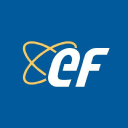Export Finance Australia Validates Energy Fuels' Donald Project & Signals Western Capital Re-rating in Critical Minerals

Energy Fuels secures A$80M Export Finance Australia backing for Donald rare earth project, validating Western critical minerals strategy with 2027 production target.
- The conditional A$80 million debt support from Export Finance Australia (EFA) provides tangible financing validation for Energy Fuels’ Donald Project, significantly de-risking execution and affirming institutional confidence in the company’s strategy.
- Energy Fuels’ 50:50 debt-to-equity capital structure, backed by a strong balance sheet with over US$250 million in liquidity and zero debt as of 2H 2026, demonstrates disciplined funding credibility as the company approaches its Final Investment Decision (FID) in Q4 2025.
- The Donald Project plays a central role in strengthening Western supply-chain resilience by producing enough heavy rare earth elements to meet roughly one-third of U.S. demand for Dysprosium and one-quarter for Terbium, two of the most critical inputs in clean energy and defence technologies.
- The project’s high-grade monazite feedstock will be processed through Energy Fuels’ White Mesa Mill in Utah, the only operating U.S. facility capable of separating rare earth elements at commercial scale, ensuring full vertical integration across the value chain.
- Together, the EFA-backed financing and the company’s strategic geopolitical alignment enhance Energy Fuels’ scarcity premium across both the uranium and rare-earth value chains, positioning it for potential re-rating as Western critical-mineral financing accelerates.
Capital Validation in the Critical-Minerals Race
Global capital allocation in critical minerals is shifting from exploration optionality toward execution-validated assets with secure government or export-credit backing. Energy Fuels Inc. (NYSE American: UUUU) (TSX: EFR) and its joint venture partner Astron Limited (ASX: ATR) received a conditional A$80 million Letter of Support from Export Finance Australia (EFA) on October 20, 2025, marking a pivotal financing milestone for the Donald Rare Earth and Mineral Sands Project in Victoria, Australia.
For investors, EFA's endorsement provides more than funding, it establishes institutional validation of project viability, environmental and social governance compliance, and strategic alignment with allied-nation industrial policy. The conditional support represents the first major sovereign-backed commitment to a Western rare-earth project positioned to supply approximately one-third of United States dysprosium demand and one-quarter of terbium demand from 2027 onward.
The Donald Project stands as a long-life, heavy-rare-earth-rich feedstock asset jointly advanced by Energy Fuels and Astron. The project's fully permitted status, combined with EFA backing, positions it among a select group of critical-mineral developments receiving government-backed financing in the context of Western supply-chain re-alignment efforts.
Mark Chalmers, Chief Executive Officer of Energy Fuels, emphasized the project's readiness and strategic value:
"What's extremely attractive is the fact that it’s shovel ready, it's got these heavies and it's in Australia. It is fully permitted and you can go into construction really soon."
Financing Validation & De-Risking: Why Institutional Backing Matters
Export Finance Australia serves as Australia's export credit agency, providing commercial finance for export trade and overseas infrastructure development. EFA operates similarly to the United States Export-Import Bank and Canada's Export Development Corporation, funding projects aligned with national-interest mandates. Such participation typically functions as implicit credit enhancement for commercial lenders and co-financiers.
The conditional, non-binding Letter of Support requires completion of due diligence across financial, technical, environmental, and social assessments, along with credit, risk, and legal approvals. For investors, projects with sovereign-backed participation typically achieve lower cost of capital, with spread benefits ranging from 50 to 150 basis points compared to purely commercial debt structures.
Donald Project Capital Framework
The Donald Project targets total funding of A$520 million based on project parameters announced in July 2025, encompassing capital expenditures, start-up working capital, and A$44 million in finance costs, fees, and interest during construction. The joint venture is pursuing a 50:50 debt-to-equity gearing ratio, reflecting prudent leverage consistent with Tier-1 mining project norms.
Energy Fuels has committed to staged equity investment of up to A$183 million, structured as A$45 million pre-Final Investment Decision (FID) and A$138 million post-FID. Additional pro-rata equity contributions by the joint venture partners total A$122 million on a 51 percent Astron, 49 percent Energy Fuels basis, bringing Energy Fuels' total equity participation to approximately A$243 million.
Energy Fuels maintains strong balance-sheet capacity to fulfill its equity commitments. As of June 30, 2025, the company reported US$253 million in working capital with zero debt. Inventory holdings as of that date included 725,000 pounds of finished uranium trioxide and 37,000 kilograms of finished separated neodymium-praseodymium oxide, monetizable assets supporting liquidity without requiring equity dilution.
Astron continues to work with its debt advisor, ICA Partners, on arranging debt funding. The joint venture is engaged in advanced discussions with other export-credit agencies and commercial banks to confirm the syndicate that will provide the project financing facility.
Quantitative Financing Metrics: Capital Discipline Meets Growth Ambition
The A$520 million capital requirement positions the project within established ranges for integrated heavy mineral sands and rare-earth element operations. The 50:50 debt-to-equity structure reflects leverage parameters typical for mining developments in jurisdictions with transparent regulatory frameworks.
Energy Fuels' self-funding capacity represents a material de-risking factor. The company's ability to contribute A$45 million pre-FID without dilution preserves net asset value per share while maintaining optionality for growth capital allocation across its uranium and rare-earth portfolio.
The financing timeline progresses in parallel with procurement and long-lead equipment sourcing, compressing the critical path to first production. This parallel advancement reduces schedule risk and positions the joint venture to capitalize on rare-earth price cycles coinciding with targeted commissioning in the second half of 2027.
For institutional investors, disciplined capital structure combined with strong sponsor balance sheets reduces execution uncertainty. Projects with fully committed equity and cornerstone debt typically achieve commercial operation on schedule at higher rates than those dependent on future capital raises or debt syndication completion.
Strategic Geopolitical Positioning: A Western Alliance Supply Chain
Western governments are actively financing midstream rare-earth processing capacity to reduce dependence on Chinese separation infrastructure. The United States Department of Energy Critical Materials programs and Australia's export-credit infrastructure both prioritize development of domestic and allied-nation supply chains for elements critical to clean energy, defense, and advanced manufacturing applications.
EFA's involvement in the Donald Project financing aligns with both nations' strategic objectives. The project creates a vertically integrated supply pathway from Australian mining through United States processing, with end-to-end traceability, a key environmental, social, and governance credential for Western original equipment manufacturers facing supply-chain transparency requirements.
Donald's Global Relevance
The Donald Project's fully permitted status and heavy-rare-earth profile position it to meet approximately 33 percent of United States dysprosium demand and 25 percent of terbium demand once Phase 1 production commences, according to joint venture projections. Dysprosium and terbium serve as critical inputs for permanent magnets used in electric vehicle traction motors, wind turbine generators, and defense electronics.
Phase 1 annual output targets include 7,200 tonnes of Rare Earth Element Concentrate containing up to 1,000 tonnes of neodymium-praseodymium oxides, 92 tonnes of dysprosium oxide, and 16 tonnes of terbium oxide. The life-of-mine offtake agreement directing 100 percent of concentrate to Energy Fuels provides supply-chain continuity and processing integration.
Chalmers detailed the offtake structure:
"We're earning 49% ownership of Donald but we get 100% of the monazite. There's a transfer pricing mechanism where we get 100% of the monazite and that means including 100% of the heavies."
Operational Integration: White Mesa’s Advantage
Energy Fuels operates the White Mesa Mill in Utah, the only operating conventional uranium mill in the United States and the only facility in the country currently capable of processing monazite for production of rare-earth oxides. The facility functions as a dual-use asset processing monazite feedstock for rare-earth oxide separation alongside traditional uranium ore processing.
White Mesa has current capacity to process all Donald Phase 1 concentrate production. This existing infrastructure represents material de-risking compared to projects requiring greenfield processing facility construction. Capacity constraints and permitting challenges have delayed numerous rare-earth separation projects globally; White Mesa's operational status eliminates this execution risk for Donald feedstock.
Processing & Separation Timeline
Energy Fuels is piloting heavy rare-earth separation at White Mesa, producing one kilogram of dysprosium oxide at 99.5 percent purity in August 2025. The company expected to produce 15 kilograms of dysprosium oxide in October 2025 and one kilogram of terbium oxide in November 2025.
Energy Fuels expects to commission full capacity for separated dysprosium, terbium, and other heavy rare-earth oxide production by late 2026 with minor modifications to existing solvent extraction circuits. This timeline positions the facility to receive and process Donald concentrates immediately upon project commissioning targeted for the second half of 2027.
Operational synergies between uranium and rare-earth processing reduce unit costs through shared reagent procurement, permitting frameworks, and environmental compliance infrastructure.
Chalmers referenced the expansion plans at White Mesa:
"The money we raised was mainly for two things: the Phase 2 at White Mesa to build this expanded plant which is the size of Lynas and also for potential financing of the Donald project in Australia which is a joint venture we have with Astron."
Resource Scale & Long-Life Economics
The Donald Project encompasses a total mineral resource of 1.81 billion tonnes supporting a mine life exceeding 58 years across two development phases. Phase 1 production targets 7,200 tonnes per annum of concentrate containing up to 1,000 tonnes of neodymium-praseodymium, 92 tonnes of dysprosium oxide, and 16 tonnes of terbium annually.
Project economics benefit from co-product revenue streams including titanium and zirconium-rich heavy mineral concentrates for global supply chains. These by-product credits reduce net cost exposure to rare-earth price volatility while providing revenue diversification across multiple commodity markets.
Timing the Re-rate
Several distinct catalysts provide institutional investors with clear visibility for portfolio allocation decisions. Final Investment Decision for the Donald Project is expected as early as December 2025. Commissioning of dysprosium and terbium separation capacity at White Mesa Mill is targeted for late 2026. First production from Donald Phase 1 is planned for the second half of 2027, subject to securing project financing and completion of a positive FID.
Energy Fuels expects to commence processing of low-cost Pinyon Plain uranium ore feed in the fourth quarter of 2025 through the first quarter of 2026, with projected all-in sustaining costs of US$23 to US$30 per pound providing meaningful margin expansion in the uranium segment.
This sequence provides quarterly milestone visibility through 2027, enabling institutional investors to align capital allocation with project advancement.
Jurisdictional & ESG Advantage: Capital Certainty in Stable Regimes
The Donald Project is located in Victoria, Australia, a jurisdiction that maintains transparent permitting processes and established regulatory frameworks. Energy Fuels' processing operations in Utah provide similar jurisdictional advantages within the United States regulatory environment. Projects anchored in these jurisdictions benefit from predictable permitting timelines and comprehensive environmental, social, and governance oversight.
EFA's due-diligence requirements encompass environmental and social criteria beyond standard financial and technical assessments. This additional scrutiny provides assurance for ESG-mandated institutional investors that the project meets sustainability standards required for portfolio inclusion.
The Investment Thesis for Critical Minerals
- Validated government-backed financing from Export Finance Australia materially reduces execution risk and enhances access to lower-cost debt structures, improving project internal rate of return and reducing sponsor equity requirements compared to purely commercial financing alternatives.
- Integrated value-chain positioning from Australian mining through United States processing to end-user supply establishes a vertically integrated Western rare-earth pipeline that distinguishes Energy Fuels among publicly traded critical-mineral companies.
- Strategic heavy rare-earth concentration projected to meet approximately 30 percent of United States dysprosium demand and 25 percent of terbium demand positions Energy Fuels as a leveraged supplier of elements facing acute supply constraints in permanent-magnet supply chains.
- Strong balance-sheet capacity with US$253 million working capital and zero debt as of June 30, 2025, ensures self-funded equity participation without shareholder dilution while maintaining financial flexibility for organic growth and opportunistic acquisitions.
- Multi-commodity portfolio exposure across uranium and rare-earth price cycles provides diversified re-rating potential as nuclear-energy policy support and electrification demand drivers accelerate simultaneously.
- Western government industrial policy initiatives including Export Finance Australia support, United States Department of Energy programs, and domestic sourcing incentives continue to favor allied-nation critical-mineral supply chains with measurable funding commitments.
- Mine life exceeding 58 years with 1.81 billion tonnes of total mineral resources establishes a long-duration asset base supporting sustained cash-flow generation across multiple commodity price cycles.
- Operational infrastructure at White Mesa Mill eliminates greenfield processing risk and provides immediate rare-earth oxide production capability upon Donald concentrate delivery, with heavy rare-earth separation expansion targeted for late 2026.
A Re-rating Signal in Allied Critical-Mineral Finance
The Export Finance Australia Letter of Support marks Energy Fuels' transition from rare-earth strategy development to execution-validated project financing. For institutional investors, this milestone converts strategic narrative into measurable financial reality through conditional government-backed financing, integrated processing operations, and quantifiable alignment with Western supply-chain policy objectives.
As Western export-credit agencies actively fund allied critical-mineral infrastructure, Energy Fuels demonstrates how disciplined capital structure, sovereign-backed financing participation, and vertical integration can translate into tangible shareholder value. The company's dual exposure to uranium and rare-earth markets, combined with zero-debt balance sheet and near-term production catalysts, positions it for potential re-rating as institutional capital continues shifting toward execution-validated critical-mineral assets with government backing.
The Donald Project financing validation, expected Final Investment Decision in December 2025, and targeted 2027 production commencement provide clear quarterly milestones for portfolio managers seeking exposure to strategic materials within allied-nation supply chains.
TL;DR
Export Finance Australia's conditional A$80 million debt support validates Energy Fuels' Donald Project execution capability while significantly de-risking the critical minerals development. The 50:50 debt-to-equity structure, combined with Energy Fuels' US$253 million working capital and zero debt position, demonstrates disciplined financing credibility ahead of Q4 2025 Final Investment Decision. The project will supply approximately one-third of U.S. dysprosium demand and one-quarter of terbium demand from 2027, processing feedstock through Energy Fuels' White Mesa Mill—the only U.S. facility capable of commercial-scale rare earth separation. Government-backed financing, vertical integration from Australian mining through U.S. processing, and alignment with Western supply-chain policy objectives position Energy Fuels for potential re-rating as institutional capital accelerates toward execution-validated critical mineral assets.
FAQs (AI-Generated)
Analyst's Notes




Subscribe to Our Channel
Stay Informed












































